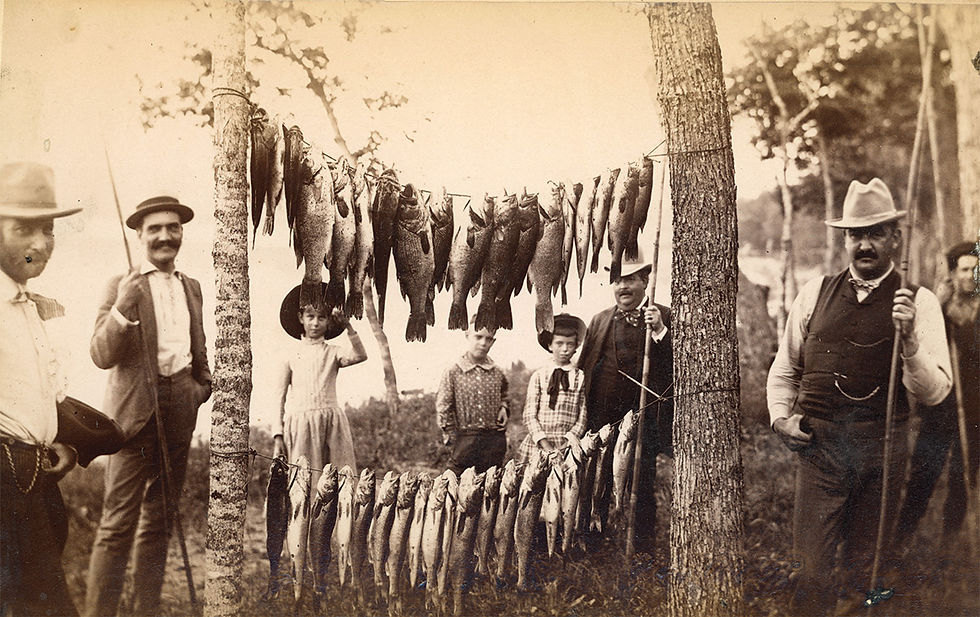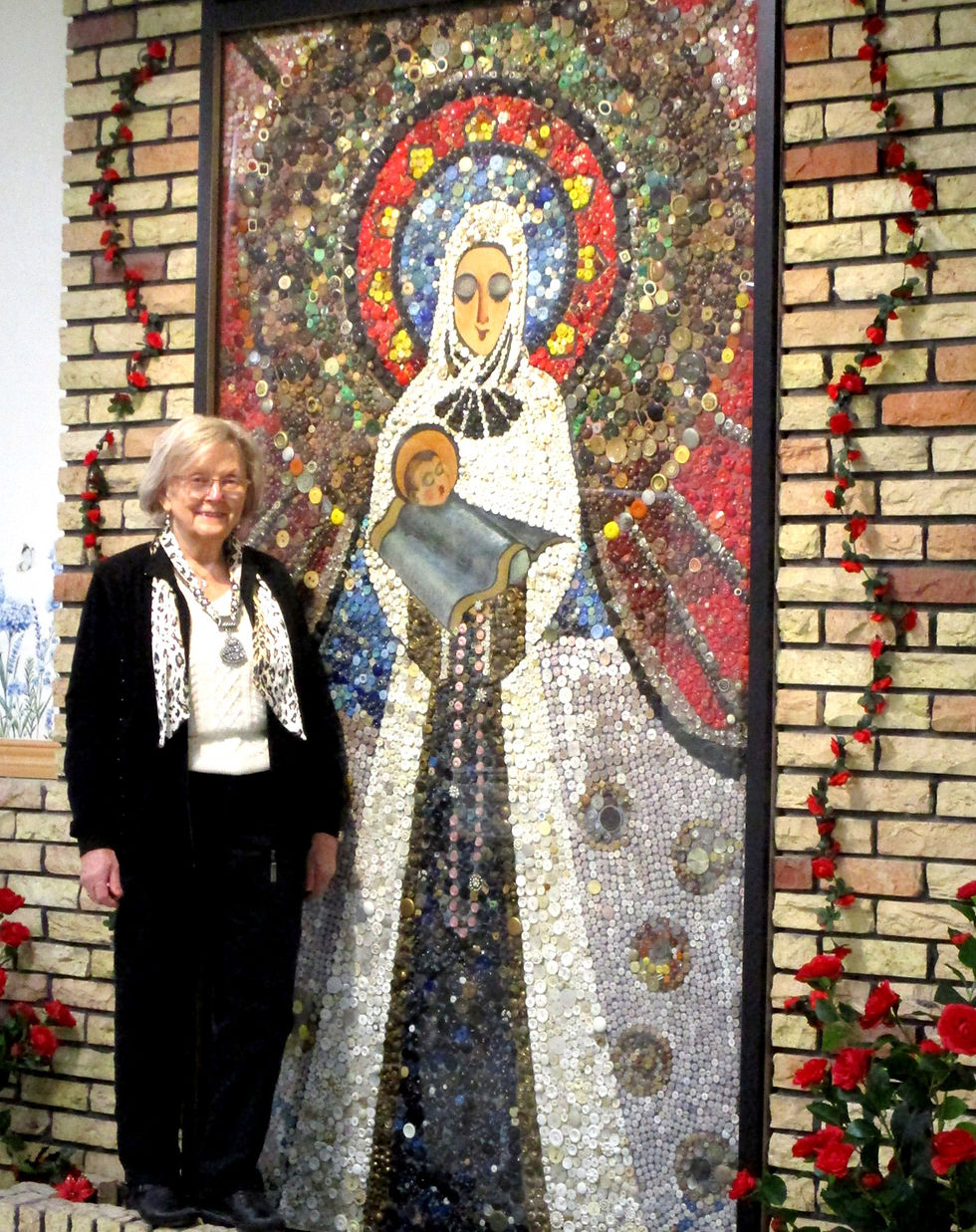My WWII memories
- Sr Perspective

- Nov 8, 2023
- 5 min read
Morris man, 105, looks back at his days as a platoon sargent
By Faith Anderson
David Jergenson, 105, of Morris is one of 16 million Americans who served in WWII. In his early 20s, David was farming with his father north of Donnelly when he got the letter from Uncle Sam telling him to report for duty in the United States Army. With little time to think about it, he said his goodbyes and boarded a bus to Fort Snelling. One of those goodbyes was to a pretty, young girl named Julette Gilbertson who he had just met the night before he left for military duty. Little did he know that Julette would someday become his wife.

At Fort Snelling, he and other recruits were processed and given a bit of basic training before their train trip to Camp Cook in California, where they joined the Fifth Armored Division. For nearly a year, the company practiced maneuvers in the extreme heat of the desert to prepare for overseas duty in Africa and later in Italy.
In 1944, David and about 2,200 others arrived in North Africa. The trip took nine or 10 days, longer than it should have because the ship zig-zagged across the Atlantic Ocean to avoid enemy submarines. As platoon sergeant, David led a group of approximately 30 soldiers as they picked up disabled tanks. “We would get the crippled tanks and haul them back to the ordinance shop,” he said. “They were repaired and we brought them back to the line.”
While in Africa, David was asked to be a member of the security watch. Nobody knew who the members of the security detail were. “We couldn’t talk about it, but we watched and listened. We didn’t want the Germans to know what was happening,” said David.
Although moving tanks was the unit’s main duty, they also worked with field artillery, moving some big guns. On occasion they did some mine sweeping, searching for hidden land mines in the ground. David didn’t care for that duty because his squadron had limited experience, and they knew how dangerous it could be.
“I didn’t see much combat,” said David. “That’s why I’m alive!” Although he wasn’t on the front lines, his unit experienced difficult and dangerous conditions. While in Italy, the winters weren’t severely cold, but rain and mud created problems. After weeks of wet and cold conditions, some of the men developed ‘trench foot,’ which is a painful condition of the feet caused by long immersion in cold water or mud. Later they learned that supplies had been lost in a bombing in the port of Naples, creating a shortage of boots and other items for U.S. military personnel. David recalled how hard it was to get the much-needed sleep when one’s feet are cold and wet. Necessity being the mother of invention, he found an old rubber inner tube, cut it into pieces, tied the ends with baling wire and slipped the makeshift boots over his shoes to keep his feet dry.
Later, his unit passed through an Italian city and saw a man hanging upside down. Turns out it was Benito Mussolini, the Italian fascist dictator. The government had been overthrown and Mussolini was executed by partisan citizens during a revolt.
One rainy day, the First Sergeant announced that they were going to hold a church service in a Fiat factory in Italy. “I was raised in a Christian home and wasn’t too concerned about what I believed,” David shared. But after the sergeant finished preaching, David realized that he needed to have faith. “I confessed my sin and received Jesus as my savior. That was one of the most important things that ever happened to me in my life.”

Late in the summer of 1945 after the war in Europe had ended, David’s unit was given orders to be part of a convoy heading for Japan through the Panama Canal. As they neared the canal, they were told to abort their mission and head for the New York City port.
“Something happened,” said David. “We didn’t know what.” Eventually the men found out that the atomic bomb had been dropped on Japan. “It was quite a thing,” he recalled.
“It was pretty wild,” said David of the mood aboard the ship when everyone learned of the end of the war. The whole convoy was detoured to the east coast of the U.S.
On Aug. 15, 1945, six days after the bombing, Japan surrendered. On Sept. 2 of that year, the Japanese government signed the Instrument of Surrender, a written document that formalized their submission. That effectively ended the war.
“We went to the New York port,” David recalled, “and then to Camp McCoy in Wisconsin.” The troops were happy to eat food they had only dreamed about when overseas. They were granted a 45-day furlough and then discharged, although government officials did try to convince the men to re-enlist. “I wanted a life of my own,” he said. David left the service and headed back to Stevens County to the farm home of his parents.
David’s father, George, was five years old when he came to this country from Norway with his parents and settled on 80 acres in Stevens County. David was the eighth of their 11 children and grew up working on the farm, feeding hogs, chickens and milking their three cows before walking a mile and a half to country school. Like his father, he graduated from eighth grade and continued living on the family farm until he entered the service.
Getting back to Minnesota was a relief for him. Fortunately, Julette, the girl he had met the day before his deployment, was still waiting for him when he returned. “Some of my Army buddies got ‘Dear John’ letters while we were overseas,” said David. “They (the girls) just didn’t want to wait for them to come home, I guess.”
David farmed with his parents and rented some additional land. Seven months after his return, he married Julette Gilbertson and they continued to live near Donnelly until they purchased a farm north of Cyrus. There they raised five children -- three girls and two boys. Julette died in July of 2021 at the age of 97.
David is a couple months away from his 106th birthday on Jan. 1, and attributes his longevity to eating the right food.
“My mother was a good cook and I’ve eaten a lot of oatmeal in my life,” he said with a smile. He added, “I do like fish.” Friends say that he also believes in taking collagen to maintain his good health.

David enjoys music and is proud to have sung second tenor in a quartet that performed at churches and other events in the area. “My daughters are good singers, too,” he recalled. “They should have recorded their good singing.”
As far as sports are concerned, David remembers playing a lot of softball in country school and 4-H. “I had quite a curve ball, I did,” he remembered. “I could strike out the best batters.” He still enjoys watching football. “But my team lost three in a row now,” he said, referring to the record of the Minnesota Vikings.
Currently, David enjoys a quiet life at an assisted living facility in Morris. His health is good, and he gets around with the assistance of a walker. “But my eyes aren’t so clear these days,” he said. He remembers only one real health issue in his 105 years. “I had an appendicitis attack after the war,” he stated.
Beneath his soft-spoken, unassuming manner lies the heart of a hero who served his country admirably in the most devastating conflict in human history.
According to The National WWII Museum, there are 2,787 WWII veterans living in Minnesota today, all of whom are well into their 90s and older.
Nationally, there are 119,550 WWII veterans still alive, based on information from the Department of Veterans Affairs, dated September of 2023. But these WWII veterans are dying at a rate of 131 per day.




Comments